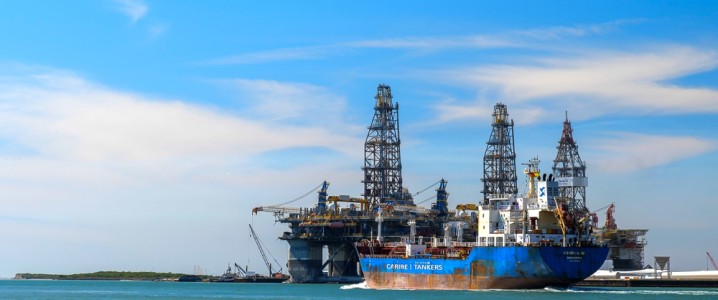Venezuela has formally requested detailed information from neighbouring Trinidad and Tobago regarding first field-tests planned by Exxon Mobil in a newly awarded ultra-deep water exploration block close to the two countries’ maritime border, three separate sources and a diplomatic note reviewed by Reuters show.
The exploration block, awarded to Exxon earlier this year, is situated in ultra-deep water off Trinidad’s east coast and lies adjacent to the maritime boundary with Venezuela. It is also located northwest of the prolific Stabroek block operated by Exxon in Guyana. Under Article 8 of their delimitation treaty, the two countries must inform one another of planned exploration activity within 500 metres of the boundary line, a point Venezuela cited in demanding the information.
Trinidad has indicated its willingness to share a seismic survey plan scheduled for next year, but has declined to disclose detailed operational plans, stating confidentiality provisions prevent disclosure of specific data on “Block TTUD 1”. A government memo cited by Reuters reads: “The Government of Trinidad and Tobago is bound by confidentiality provisions … specific and detailed information … cannot be disclosed.”
Notably, this request from Venezuela comes directly after it suspended a wide-ranging energy cooperation agreement with Trinidad over the latter’s support for the United States. The implied threat to Trinidad and Tobago’s maritime border is part of a broader approach from Venezuela regarding energy projects in neighbouring countries, most famously its tensions with Guyana.
For Exxon, the deal marks a return to Trinidad and Tobago’s waters after more than two decades. The country’s government recently negotiated an ultra-deepwater block which covers water depths of 2,000–3,000 metres and is seen as being comparable to Guyana’s Stabroek basin. Industry sources suggest the block may require seismic acquisition and drilling of exploration wells, and could involve a multi-billion-dollar investment if commercially viable.
From an energy-industry perspective, the Venezuelan request adds a layer of risk to what might otherwise be seen as a promising deepwater play. On one hand, the proximity to the proven Stabroek acreage gives the block strong geological potential. On the other hand, the political-boundary overlay raises the prospect of diplomatic friction, regulatory delay, or even unilateral injunctions if a discovery straddles the boundary or raises transit/sovereign-entitlement issues.
For Exxon, managing both the technical difficulties and geopolitical risk promises to be a trying task. For Trinidad, the government must balance its desire to attract deepwater investment with the need to manage regional tensions and treaty obligations.
By Charles Kennedy for Oilprice.com
More Top Reads From Oilprice.com

